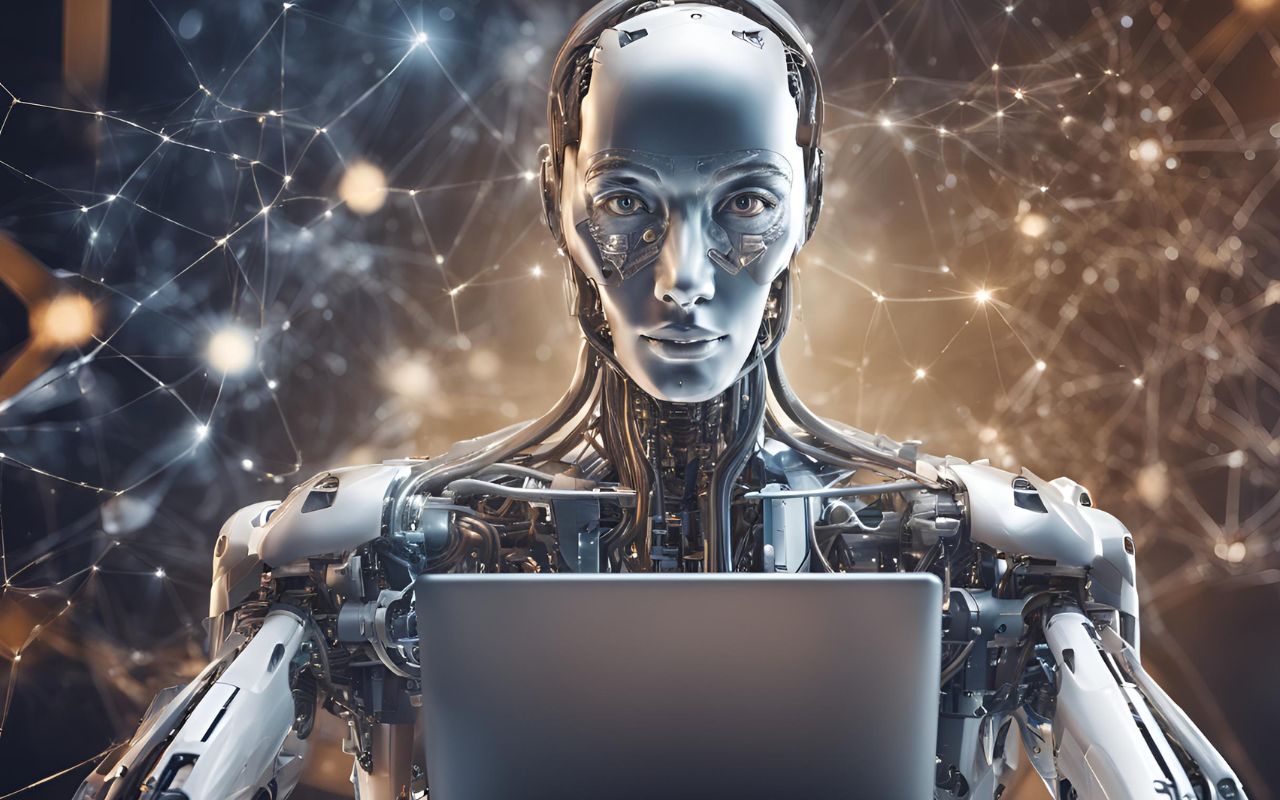
The impact of AI and machine learning on SEO is profound and far-reaching, fundamentally altering how search engines evaluate and rank content. As artificial intelligence (AI) and machine learning technologies advance, they offer powerful tools that are reshaping the digital marketing landscape. From improving search algorithms to enhancing content strategies, these technologies are driving significant changes in SEO practices. Understanding their impact is crucial for staying competitive in the ever-evolving world of search engine optimization.
What is AI and Machine Learning in SEO?
AI and machine learning are technologies that enable computers to perform tasks that typically require human intelligence. AI involves creating systems that can perform tasks like understanding natural language, recognizing patterns, and making decisions based on data. Machine learning, a subset of AI, involves training algorithms to improve their performance over time as they process more data. In the context of SEO, these technologies are used to refine search algorithms, personalize search results, and automate various aspects of SEO strategy.
For instance, Google AI leverages advanced machine learning models to enhance search algorithms and provide more accurate and relevant search results. This means that AI and machine learning are not just supporting but actively driving the evolution of SEO practices.
Why AI and Machine Learning Matter for SEO
AI and machine learning are critical for SEO because they offer new ways to analyze and interpret data, optimize content, and enhance user experience. These technologies enable more sophisticated search algorithms that can better understand user intent, deliver more relevant search results, and offer personalized experiences. By integrating AI and machine learning into SEO strategies, businesses can improve their ability to rank higher in search results, attract targeted traffic, and engage users more effectively.
The ability of AI to process and analyze large volumes of data allows for more precise insights into user behavior and preferences. This helps businesses tailor their SEO efforts to meet the needs of their audience more accurately. Furthermore, machine learning algorithms can adapt and evolve, ensuring that SEO strategies remain effective as search engine algorithms and user behaviors change.

10 Key Ways AI and Machine Learning Are Transforming SEO
1. Enhanced Search Algorithms
The impact of AI and machine learning on SEO is evident in the continuous improvement of search algorithms. AI-powered algorithms can analyze vast amounts of data to identify patterns and trends that inform search rankings. This leads to more accurate and relevant search results. Google’s BERT update is a prime example of how AI is used to understand the nuances of natural language and improve search accuracy.
Machine learning models enable search engines to understand context and intent better, enhancing the quality of search results and user satisfaction. This continuous refinement of search algorithms means that SEO strategies must evolve to keep up with these advancements.
2. Personalized Search Results
AI and machine learning are revolutionizing the personalization of search results. By analyzing user behavior, preferences, and historical data, AI algorithms can deliver highly personalized search experiences. This personalization improves user engagement and satisfaction, as users are presented with content that closely aligns with their interests. Google’s Search Personalization offers a tailored search experience based on user history and preferences.
Businesses can leverage this personalization by optimizing their content to match user intent and preferences, thereby increasing their chances of appearing in relevant search results. Personalized search results also enhance the effectiveness of targeted marketing strategies.
3. Content Creation and Optimization
AI tools are increasingly used to assist in content creation and optimization. These tools can generate content ideas, suggest keywords, and even create written content based on specified criteria. For example, Copy.ai provides AI-powered content generation that helps marketers create compelling copy quickly and efficiently.
Machine learning algorithms analyze successful content to identify patterns and characteristics that drive engagement. By understanding these patterns, businesses can optimize their content to improve its effectiveness and SEO performance. AI-driven content optimization ensures that content is both high-quality and aligned with search engine requirements.
4. Improved User Experience
AI and machine learning contribute to a better user experience by enabling more intuitive and user-friendly websites. AI-driven tools can analyze user interactions and behavior to identify areas for improvement, such as page load times, navigation, and overall usability. Google PageSpeed Insights helps evaluate website performance and offers recommendations for enhancements.
A seamless user experience not only keeps visitors engaged but also contributes to higher search rankings. Search engines prioritize websites that provide a positive user experience, making it essential for businesses to focus on optimizing their sites with the help of AI and machine learning.
5. Predictive Analytics
AI and machine learning enable predictive analytics, which can forecast future trends and user behaviors based on historical data. This capability allows businesses to anticipate changes in search patterns and adapt their SEO strategies accordingly. Google Analytics offers advanced analytics tools that utilize machine learning to provide insights and predictions.
By leveraging predictive analytics, businesses can stay ahead of trends, optimize their SEO efforts proactively, and make data-driven decisions to enhance their digital marketing strategies.
6. Enhanced Keyword Research
Keyword research is a fundamental aspect of SEO, and AI tools are making this process more efficient and effective. AI-powered tools can analyze large datasets to identify high-performing keywords, long-tail keywords, and emerging trends. For instance, Ahrefs provides comprehensive keyword research tools that utilize machine learning to deliver actionable insights.
Machine learning algorithms can also predict keyword performance based on search trends and user behavior, helping businesses target the most relevant keywords for their SEO campaigns. Enhanced keyword research leads to more effective SEO strategies and improved search visibility.
7. Automated SEO Reporting
AI and machine learning streamline SEO reporting by automating the collection and analysis of performance data. Automated reporting tools can generate detailed reports on various SEO metrics, such as traffic, rankings, and engagement. SEMrush offers automated reporting features that provide real-time insights into SEO performance.
Automation in reporting saves time and resources while ensuring that businesses have access to up-to-date information. This allows for more informed decision-making and helps optimize SEO strategies based on accurate data.
8. Voice Search Optimization
With the rise of voice-activated devices, optimizing for voice search has become increasingly important. AI and machine learning technologies play a significant role in understanding and processing voice queries. Voice search optimization involves adapting content to match the natural language used in voice searches. Google Assistant exemplifies how AI enhances voice search capabilities.
Businesses can optimize their content for voice search by focusing on conversational keywords, question-based queries, and providing clear, concise answers. Effective voice search optimization improves visibility in voice search results and enhances user experience.
9. Image and Video Recognition
AI and machine learning are advancing image and video recognition technologies, allowing search engines to analyze and index visual content more effectively. This capability enhances SEO by making it possible to optimize images and videos for better search visibility. Google Vision AI offers powerful image recognition tools that help businesses improve their visual content strategies.
By leveraging image and video recognition, businesses can enhance their multimedia content, improve indexing, and drive more traffic to their sites through visual search.
10. Fraud Detection and Security
AI and machine learning are crucial for detecting and preventing fraudulent activities and ensuring security in SEO practices. These technologies can identify suspicious patterns, detect spammy behavior, and protect against malicious attacks. Sitelock provides security solutions that utilize AI to safeguard websites.
Maintaining security and integrity in SEO practices is essential for protecting user data and preserving search rankings. AI-driven fraud detection and security measures help businesses maintain a secure online presence and prevent potential threats.
The Future of AI and Machine Learning in SEO
The future of AI and machine learning in SEO promises even more advanced capabilities and innovations. As these technologies continue to evolve, they will offer new ways to enhance search algorithms, optimize content, and improve user experiences. Staying informed about the latest developments and trends will be crucial for businesses aiming to leverage AI and machine learning for SEO success.
Conclusion
The impact of AI and machine learning on SEO is transformative, offering significant opportunities for enhancing search engine optimization strategies. From refining search algorithms and personalizing search results to optimizing content and improving user experiences, these technologies are reshaping the SEO landscape. Embracing AI and machine learning can lead to more effective SEO strategies, better search rankings, and a competitive edge in the digital marketplace.
Frequently Asked Questions
1. How does AI impact SEO?
AI impacts SEO by enhancing search algorithms, personalizing search results, optimizing content, and improving user experiences. It enables more accurate and relevant search results and helps businesses tailor their SEO strategies to meet user needs.
2. What role does machine learning play in SEO?
Machine learning plays a role in SEO by analyzing large datasets, predicting trends, and improving search algorithms. It helps businesses optimize their content and strategies based on data-driven insights.
3. How can AI tools improve content creation?
AI tools improve content creation by generating content ideas, suggesting keywords, and even creating written content. They streamline the content creation process and enhance the effectiveness of SEO strategies.
4. What is predictive analytics in SEO?
Predictive analytics in SEO involves using AI and machine learning to forecast future trends and user behaviors based on historical data. It helps businesses anticipate changes and adapt their SEO strategies accordingly.
5. How does voice search optimization work with AI?
Voice search optimization works with AI by adapting content to match natural language used in voice queries. AI technologies help understand and process voice searches, improving visibility in voice search results.
Learn more:






